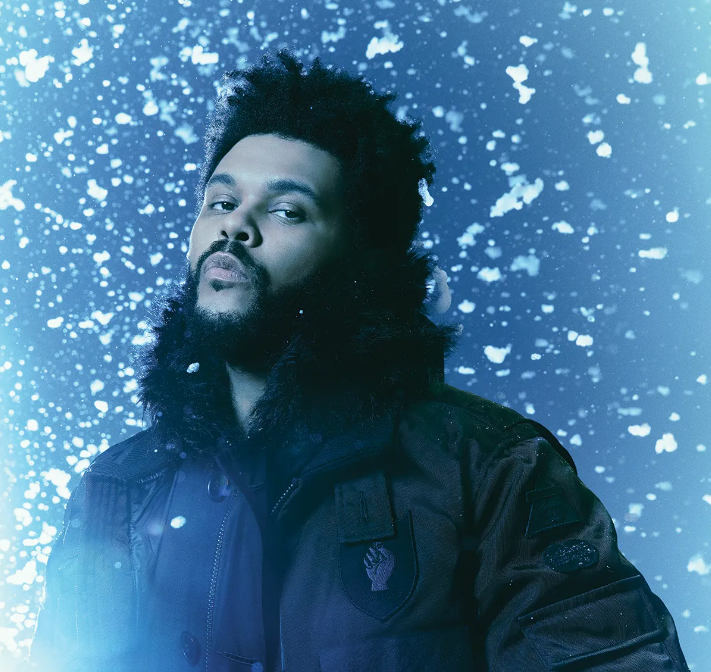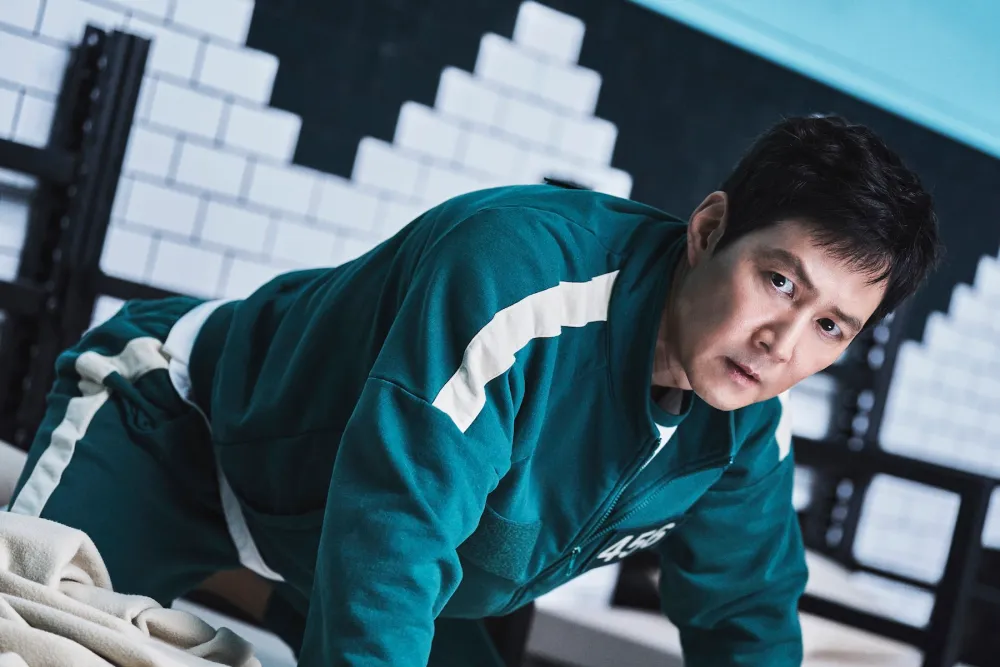On Sept. 3, 2022, on what was intended to be the final date of his exhausting “After Hours Til Dawn” North American tour, the Weeknd confidently took the stage of SoFi Stadium in Inglewood, California, before 80,000 fans, friends, label executives, his management and a camera crew shooting a climactic scene for his HBO drama “The Idol.”
As the dramatic opening music of “Alone Again” thundered across the stadium, he rose slowly from beneath the stage on a hydraulic platform onto a set depicting a ruined, dystopian city. He began singing the song’s opening verses, as he had over the tour’s previous 17 concerts, while wraith-like dancers shrouded in red gowns stood at attention around him. But when, approximately 45 seconds after he appeared onstage, he shouted, “Hey, Los Angeles!” between verses, his voice cracked. He opened his mouth to sing the next line, and for one of the first times in his life, his source of power — his unmistakable, one-in-a-million voice — was gone.
“My body, and specifically my voice, had never failed me before,” he says now. “I’d been onstage with a high fever, completely sick; I’d been onstage in the middle of a breakup or a death in the family; and I’d lost my voice during a performance. But I was always able to fight through it.”
On that night, he tried to fight — he was able to sing in a low range but couldn’t come near the celestial heights that his powerful voice ordinarily can scale with ease. “I was doing all these vocal exercises onstage, like ‘Brrrrrrrrrrr,’ trying to get it back,” he says. But after a few minutes, he realized it just wasn’t going to happen.
“I was defeated on the world stage,” he says and sighs, “with everyone watching.”
In a halting voice, he explained the situation to the SoFi audience, apologized, offered refunds and promised a rescheduled date. “I had to go out there and face it,” he says now. “And also, so they could see ‘I can’t physically give you the show that you paid for.’ When I watched the video later, the reaction actually wasn’t that bad. But in my head, all I heard was booing and screaming and hate and anger,” he says. “That’s how defeated I felt.”
The Weeknd (real name: Abel Tesfaye) is one of the world’s biggest music stars, with 67 gold and platinum albums and singles, and he’s the first artist to have 25 songs with a billion streams on Spotify, including 2019’s “Blinding Lights,” the platform’s most streamed song of all time at 4.6 billion. He played for a whopping 105,000 people at a single concert in Brazil last fall and has collaborated with many top artists, including Ariana Grande, Kendrick Lamar, Daft Punk, Lana Del Rey, Travis Scott and Madonna. He headlined the Super Bowl halftime show in 2021, spending $7 million of his own money on an elaborate, COVID-protocol-certified stage and 115 dancers. So pressure is nothing new to him. And needless to say, he has resources. But this problem wasn’t something that money or even medicine could fix.
“I saw my doctor the next day, and he said, ‘There’s nothing wrong with you — your [vocal cords] are inflamed, but nothing out of the ordinary,’” the Weeknd recalls. “And that’s when we came to the realization that it was all up here,” he says, pointing to his head.
Exhaustion and stress, he says, were factors. He’d been dealing with major challenges throughout the oft-delayed tour, which was originally scheduled for the summer of 2020 and postponed several times due to the pandemic. And there were complications, logistical and otherwise, with “The Idol,” which had scrapped millions of dollars’ worth of footage from the original director, Amy Seimetz, and was being reshot, largely at the Weeknd’s sprawling Bel-Air home, with “Euphoria” mastermind Sam Levinson — a scheduling overhaul that meant the star had to shoot while on tour.

“I just think it was the last straw, man,” he says now. “There was a lot of self-imposed pressure: flying to L.A. between concerts, getting into character” — as Tedros, the sleazy, cult-leaderish would-be artist manager to pop star Jocelyn (Lily-Rose Depp) — “shooting and then flying back for the next show.
“But what led up to it? Maybe it was that year, but maybe it was my whole life: survival, school, family, friendships, relationships, making it in the music industry. I’d always kind of suppressed it. You know, delusion helps!” he says with a laugh.
Something had to give.
“My voice has always been my secret weapon,” he says, “my superpower, to get through whatever I need to get through. And in that moment, reality hit: Everything can change after this moment.”
Yet his singing voice returned within a few days, and he delivered on his promises: He played not one but two make-up shows at SoFi several weeks later, but not before hauling his enormous set all the way across the continent, at great expense, to perform two other make-up shows for what had been the tour’s intended opening date in his hometown of Toronto, which had been postponed minutes before doors opened due to a countrywide wireless outage. The make-up concerts were rapturously received, and the triumphant SoFi dates even became a concert film.
The Weeknd continued the tour across Europe in 2023 and Australia last fall, and will conclude it with another global trek later this year. But the impact of the moment hasn’t faded, and the ensuing self-analysis not only produced his next creative chapter — it may have led him to close the book on the Weeknd itself, the persona that’s made him a superstar.

“I knew that I really needed to sit the fuck down and figure out my life,” he says. “To understand what happened, face it, learn something new and start again. I’d had a kind of a mental breakdown, which is pretty much what this new album’s about.”
If there’s one character trait that everyone who knows the Weeknd can confirm, it’s that he doesn’t do anything by half. So it’s very on brand that he channeled the above experience and the ensuing self-analysis into not one, but two ambitious projects: the “Hurry Up Tomorrow” album and film.
The album, out Jan. 24, is the final installment in the trilogy the singer began with 2020’s blockbuster “After Hours” and continued with 2022’s lower-key “Dawn FM.” Together, the albums comprise a loose narrative involving a semi-autobiographical character experiencing a dark night of the soul, as the Weeknd puts it, “touching on a kind of purgatory and getting to the darkest part until you find the light at the end of the tunnel.” Despite the heavy themes, the albums have produced six of those record-breaking billion-plus-streaming songs on Spotify, including “Blinding Lights,” “Heartless” and the chart-topping duet with Grande, “Save Your Tears.”
The film, due May 16 via Lionsgate, is a suspense thriller co-written by and starring the Weeknd alongside Jenna Ortega (“Wednesday,” “Jane the Virgin”) and Barry Keoghan (“Saltburn,” “The Banshees of Inisherin”). Loosely connected to the album, the film was directed by Trey Edward Shults, known for the 2019 drama “Waves” and the 2017 horror film “It Comes at Night.” Shults wrote the film with the Weeknd and “Idol” co-writer Reza Fahim.
While the Weeknd, who turns 35 in February, shies away from revealing details about the film, broadly speaking, it continues the “After Hours” theme of a character struggling with his sense of self and delves deeply into the psychology of fame. Both the film’s original script and the new album were overhauled to incorporate the aftereffects of the Weeknd’s experience at SoFi.
“I had a good chunk of the album done, but then [SoFi] happened, and other things happened after, and you go right back to the drawing board,” the Weeknd says. “Because this was a really important, pinnacle moment in my life. How could it not be? And as an artist, you’re telling a story, so you get under the hood and try to figure out what’s going on. In the process, I got closer, and I became more grateful — I know it sounds cliché and soft or whatever, but it’s the truth. I’ve been working on myself to not push people away.”






